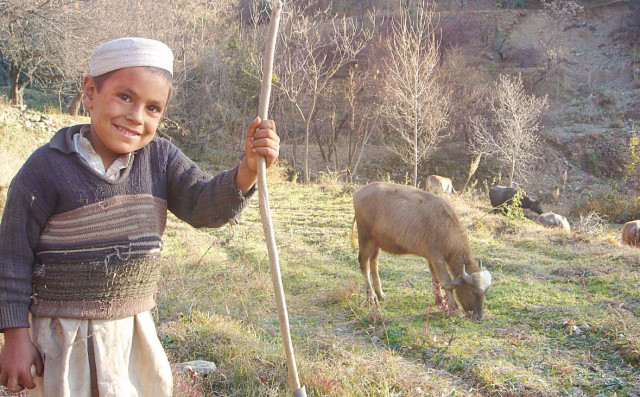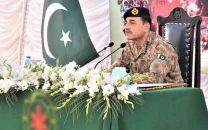Devastated livestock: Why the cows won’t come home tonight
Insurgency in Swat greatly affected the livestock industry as a great number of animals and poultry were killed.

These people are dependent on excess agricultural output and livestock production, as they sell the extra produce in the markets to back their incomes.
Like most economic sectors, the insurgency in Swat greatly affected the livestock industry in the region as a great number of animals and poultry were killed.
However, it was the floodwaters that had the most crippling effect on the locals, taking away almost all animals in the region with it, devastating the rural economy in general and the livestock owners in particular.
Rashid, a resident of Matta, told The Express Tribune, “I had eight large animals and some small ones. The shortage of feed that resulted from the insurgency and curfews killed half of them. I had to sell the rest at half their prices.”
He is not the only one to have suffered. His neighbour lost ten of his buffaloes when a mortar shell hit his stable. The village has faced a shortage of milk ever since.
According to an official survey, 45 per cent of animals were lost in the insurgency and floods.
Dr Rahat Ali, a veterinary surgeon, stressed the need for help to be extended to those who have lost livestock. “They have nothing but their animals to make a living off,” he said.
The condition of the remaining animals is not much better either.
According to Dr Samiullah, the Livestock Officer of Kabal Tehsil, a number of diseases have spread among the surviving animals.
“Contaminated water and shortage of food have resulted in animals suffering from diseases of skin, stomach, lungs and sinus, making them very weak and thin,” he said.
He added that owners needed to get sick animals to nearby veterinary hospitals to get them treated. He also emphasised the importance of regular vaccination to save animals from further harm.
The impact on livestock is clearly visible in the city, as a shortage of milk, eggs, meat and desi ghee has created problems for locals.
“We have been running this tea stall for 15 years now, but never have we come across such a shortage before,” said Bakthi, a tea stall owner in Mingora Bazaar.
The shortage resulted in increased prices, which in turn precluded many from having tea. Bakhti sighed, “Having even a cup of tea has become a luxury for some.”
Published in The Express Tribune, January 16th, 2011.



















COMMENTS
Comments are moderated and generally will be posted if they are on-topic and not abusive.
For more information, please see our Comments FAQ